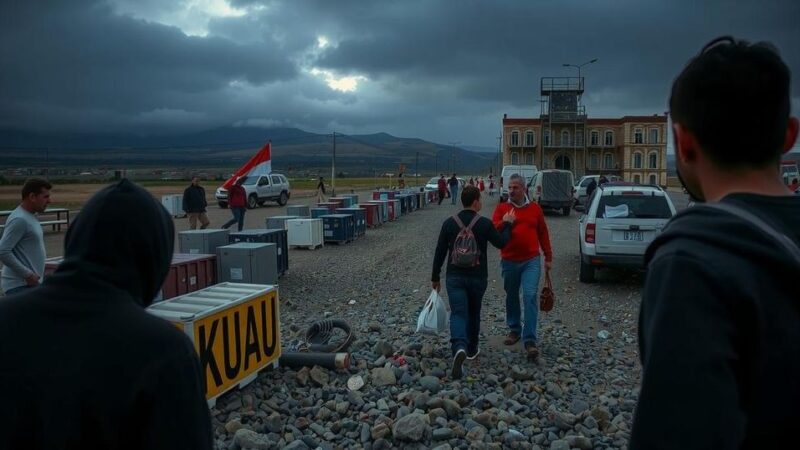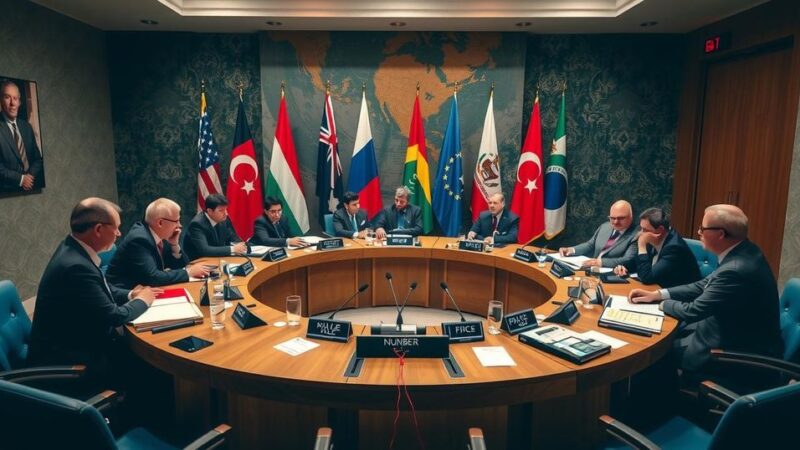Kazakhstan and Mongolia have signed a memorandum of cooperation in nuclear energy, establishing a strategic partnership. President Tokayev announced a referendum for a nuclear power plant, with significant support from the public and interest from international firms. The ADB has approved a loan for road infrastructure improvements, while Astana continues to showcase its unique cultural attractions, emphasizing its emerging significance as an energy and cultural hub.
Kazakhstan and Mongolia have recently fortified their collaboration in the nuclear energy sector by signing a memorandum of cooperation. This significant agreement was formalized on October 29, following a visit by President Kassym-Jomart Tokayev to Ulaanbaatar, where he underscored the wealth of natural resources both nations possess, particularly in mining. Alongside the nuclear energy cooperation, the countries also established a strategic partnership through a Joint Declaration, marking a milestone in bilateral relations. The signing was complemented by the first official meeting of the Business Council between the two nations, which facilitated the exchange of major commercial agreements aimed at bolstering business relations. President Tokayev has also announced a forthcoming referendum in Kazakhstan regarding the establishment of a nuclear power plant, which is set for September 2024. Leading contenders for the nuclear project include prominent international companies such as China’s CNNC, South Korea’s KHNP, France’s EDF, and Russia’s Rosatom, with oversight expected from international bodies like the International Atomic Energy Agency (IAEA). Furthermore, Kazakhstan’s recent approval of a nuclear power project has gained substantial public support, as indicated by over 70% of referendum voters favoring the initiative. This advancement positions Kazakhstan as a crucial player in the global nuclear energy landscape, particularly given its status as the world’s leading uranium producer, contributing 43% of the global supply in 2022. Kazatomprom, Kazakhstan’s state agency, will maintain local oversight of the uranium industry while fostering international partnerships. Simultaneously, discussions have intensified between Kazakhstan and South Korea concerning cooperative ventures in both nuclear power and other energy sectors, with talks led by Energy Minister Almasadam Satkaliev aiming to solidify contributions from Korean businesses. Recently, a memorandum of understanding was signed with Doosan Enerbility to explore local opportunities. In tandem with these developments, the Asian Development Bank (ADB) has approved a substantial loan aimed at enhancing road infrastructure in Kazakhstan. This funding, amounting to $291.49 million, will facilitate the reconstruction of a critical highway, thereby improving connectivity and safety for regional trade. In an artistic and cultural showcase, Kazakhstan’s capital, Astana (Nur-Sultan), continues to draw attention for its innovative architecture and rich cultural offerings. Although it is often overshadowed by Almaty, Astana features monumental mosques, theaters, and the Nur Alem Museum, reflecting the nation’s commitment to a modern cultural identity.
Recent developments in Kazakhstan highlight a robust engagement in the nuclear energy sector through international cooperation, particularly with Mongolia. The signing of a memorandum between the two nations signals a strategic partnership that encompasses the exploration of various mineral resources. Concurrently, Kazakhstan’s plans for developing nuclear power facilities are gaining momentum, backed by public support and significant foreign interest. This initiative is poised to enhance Kazakhstan’s role in the global energy market, especially as it capitalizes on its uranium production capabilities. The involvement of international partners, alongside efforts to improve national infrastructure, illustrates Kazakhstan’s strategic approach to energy and economic growth.
In conclusion, Kazakhstan’s recent agreements with Mongolia in the nuclear energy sector and the country’s proactive steps towards establishing a nuclear power plant signify a pivotal moment in its energy strategy. Strong public support for these initiatives coupled with international partnerships highlights Kazakhstan’s ambition to solidify its position as a key player in the global nuclear energy landscape. The ongoing infrastructure improvements, supported by the Asian Development Bank, further emphasize Kazakhstan’s commitment to enhancing trade connectivity and economic development, making it a focal point for international cooperation in Central Asia.
Original Source: en.inform.kz






